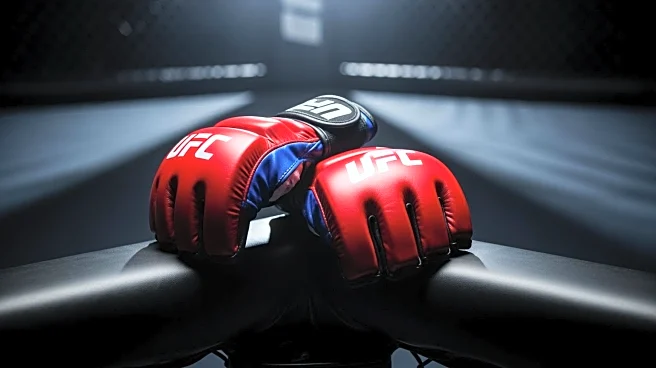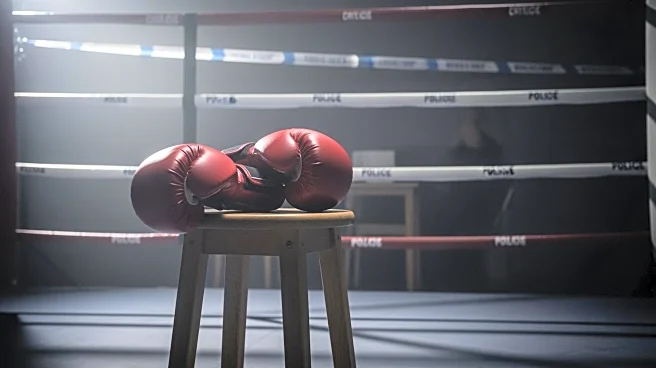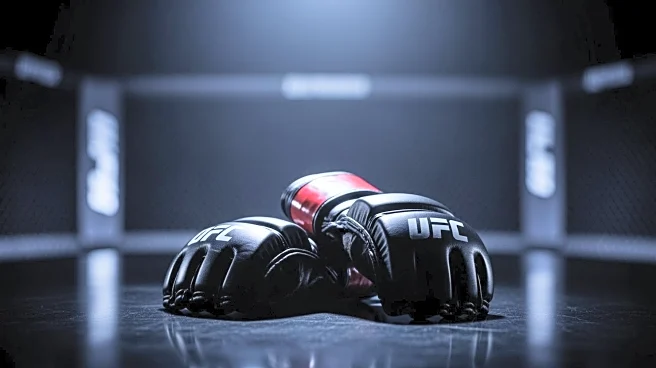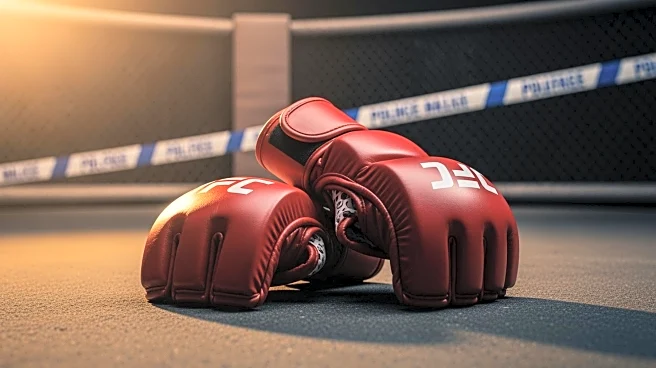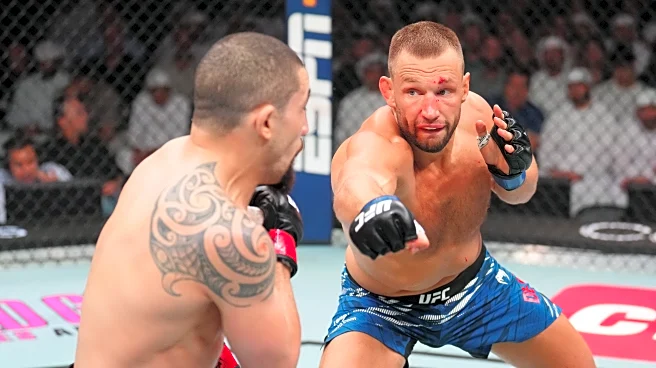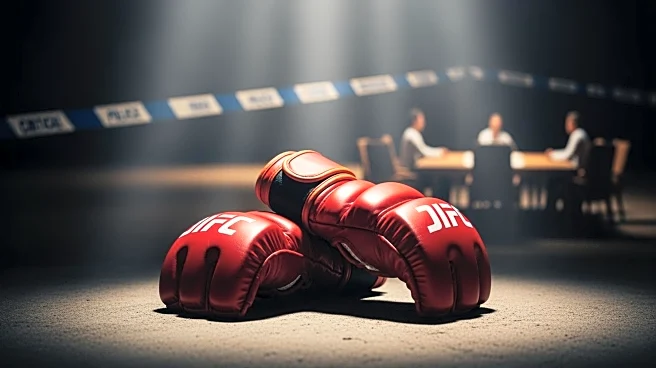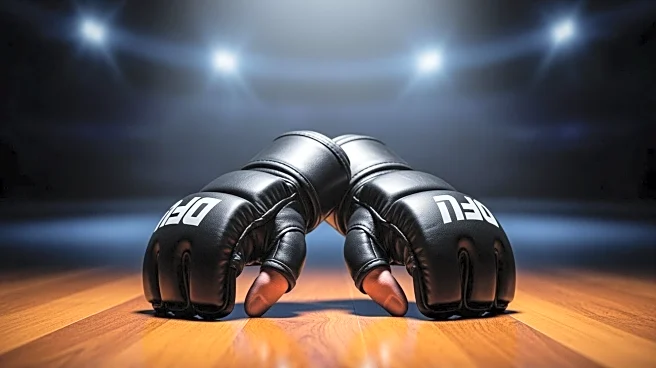What's Happening?
Middleweight UFC fighter Reinier de Ridder's coach, Harun Ozkan, made the decision to stop the fight against American Brendan Allen at UFC Fight Night 262 in Vancouver, Canada. De Ridder lost by technical
knockout after refusing to enter the fifth round. Ozkan stated that his primary responsibility is to ensure the health and safety of his fighter, and he chose to end the fight to prevent unnecessary damage. Allen's previous fight was in July 2025 at UFC 318, where he defeated Marvin Vettori by unanimous decision, bringing his record to 26 wins and 7 losses. De Ridder's record stands at 21 wins and 3 losses, following his narrow victory over Robert Whittaker by split decision in July 2025 at UFC on ABC.
Why It's Important?
The decision to stop the fight highlights the growing emphasis on fighter safety within the UFC and combat sports in general. Coaches and teams are increasingly prioritizing the long-term health of athletes over immediate competitive success. This approach can influence public perception of the sport, potentially attracting more fans who value athlete welfare. It also sets a precedent for other coaches to prioritize health, which could lead to changes in how fights are managed and regulated. The decision may impact de Ridder's career trajectory, as it underscores the importance of recovery and health management in maintaining a successful fighting career.
What's Next?
Reinier de Ridder may focus on recovery and reassessment of his fighting strategy following this decision. The UFC and other stakeholders might consider implementing more stringent health protocols to protect fighters during matches. Brendan Allen, having secured another victory, may look forward to higher-profile fights, potentially advancing his career further. The decision by Ozkan could spark discussions within the UFC community about the balance between competitive drive and athlete safety, possibly influencing future coaching decisions and fight regulations.
Beyond the Headlines
The decision to prioritize fighter health over competition could lead to broader discussions about the ethical responsibilities of coaches and sports organizations. It may prompt a reevaluation of training practices and fight strategies to ensure athlete safety. This shift could influence cultural perceptions of combat sports, emphasizing the importance of health and safety over the traditional focus on toughness and endurance.
